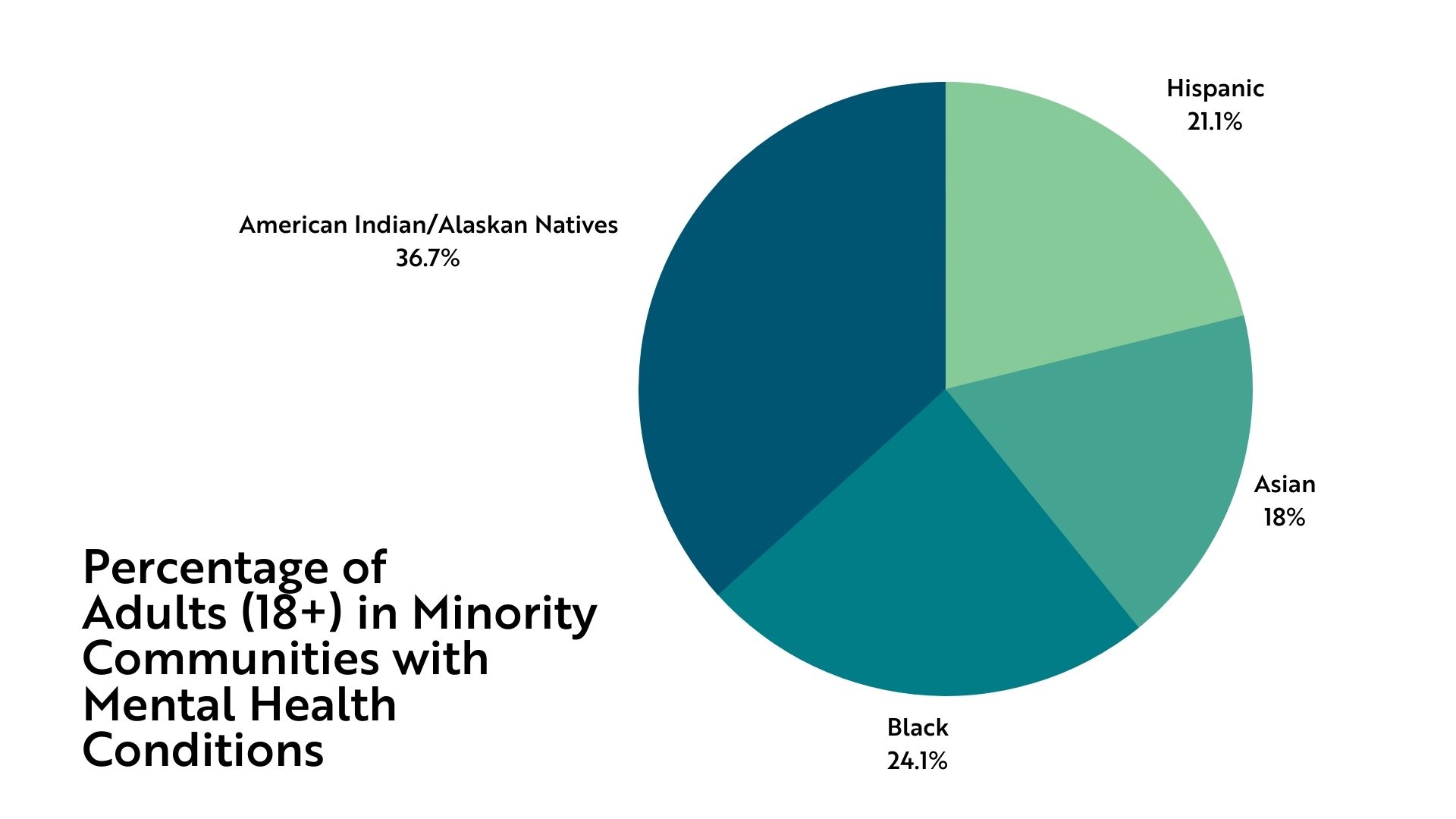Each day, millions of minorities struggle with mental health issues that often go untreated for several reasons. Minority communities often encounter greater barriers when trying to obtain mental health care. Bias and discrimination, language barriers, and lower rates of medical coverage are often leading factors of why minorities are at a higher risk of experiencing mental health-related concerns.
Mental Health Disparities in African Americans
Nearly 27% of African Americans currently live below the poverty line with 7.8% living in rural communities and 19.8% residing in urban areas. Individuals living in those urban areas may experience mental health-related concerns brought on by pre-existing risk factors (i.e., unemployment, previous, trauma, family troubles, etc.), physical and emotional segregation, and/or increased stimulation from sound, smell, sights, etc.

Mental Health Disparities in American Indian/Alaskan Natives (AI/AN)
Research has shown that AI/AN communities tend to have higher rates of mental health related concerns than the rest of the United States. AI/AN communities often have higher substance use disorders, PTSD, and suicide rates. In 2014, nearly 21% of AI/AN community members 18+ have reported a mental illness.
Mental Health Disparities in Hispanics and Latinos
Approximately, 1 out of 10 Hispanics with a mental health condition take advantage of mental health services from a health care provider. Barriers to accessing adequate mental health care include language, lack of medical insurance, and lack of general awareness about mental health.
Mental Health Disparities in Asian Americans/Pacific Islanders (AAPI)
Research indicates that nearly 2.7 million AAPI community members have mental health and/or substance use disorders and unfortunately, are less likely to obtain mental health care. Cultural barriers include the lack of mental health awareness and the myth of model minority—which creates pressure to meet societal and familial expectations.
Signs someone may need help:
- Feeling sad. Feelings of depression, anxiety, or even withdrawal from a group can indicate that something is going on.
- Irrational behaviors. An increase in risky behaviors which can cause harm to themselves or others.
- Increased substance use. Look out for an increase in alcohol consumption or drug use.
- Difficulty concentrating. If it’s hard to think, day-to-day priorities such as school or work are likely to suffer.
Here are some recommendations if someone you may know is struggling with their mental health:
- Talking about your feelings with loved ones
- Eating a well-balanced diet
- Getting routine exercise
- Improving your sleep patterns
- Seeking professional support, when/if needed
People struggling with mental health often go untreated, simply because they don’t know where to start. At Acenda, we are many things to many people. If someone you know is struggling with their mental health, Acenda’s mission-driven, compassionate, and devoted team focuses on purposeful progress for bettering individuals, families, and communities.